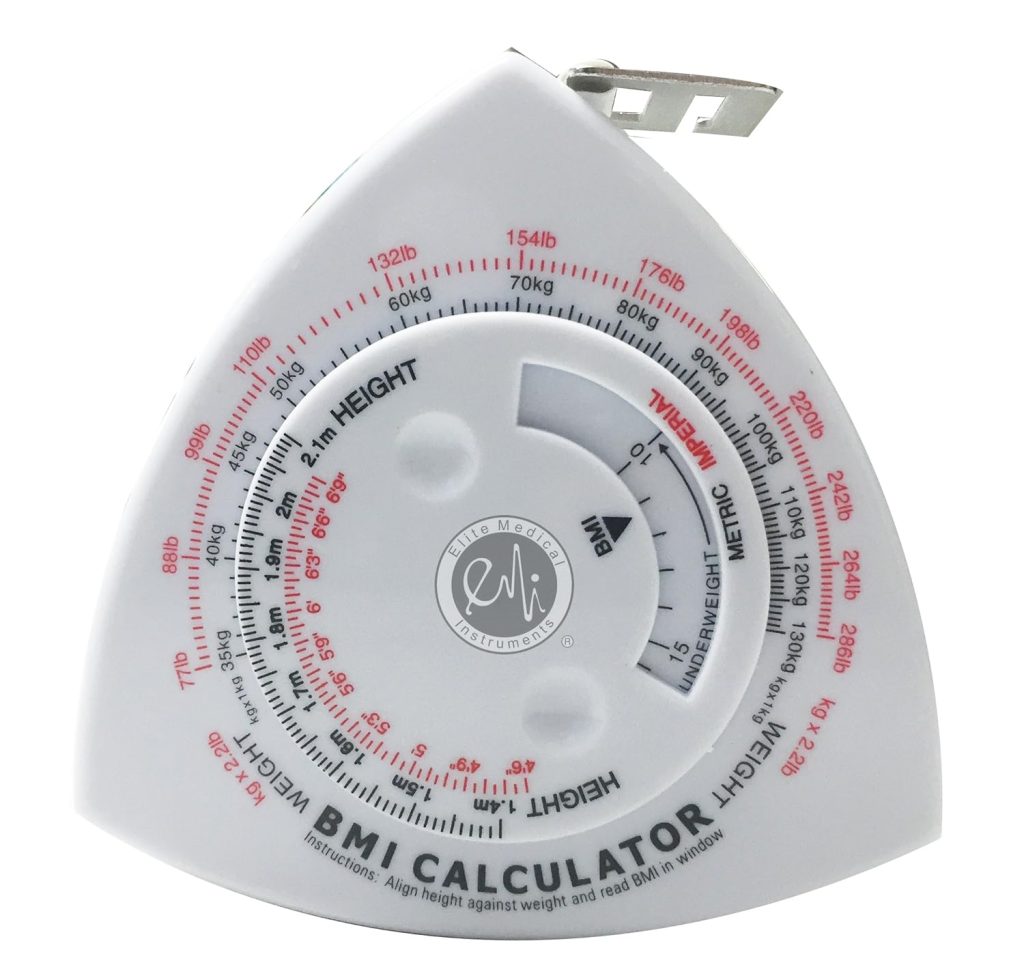Introduction to BMI (Body Mass Index)
Body Mass Index (BMI) is a widely used metric to assess an individual’s body weight relative to their height. It provides a quick and easy way to categorize weight status, which can help in understanding health risks associated with underweight, normal weight, overweight, and obesity. This informative guide will walk you through on how to calculate BMI and the importance of calculating BMI, the formula involved, and how to interpret the results.

Why Calculating BMI is Important
Understanding your BMI can be crucial for several reasons:
- Health Assessment: BMI is a useful initial screening tool to identify possible weight problems for adults.
- Risk Identification: It helps in identifying the risk of developing chronic diseases such as heart disease, diabetes, and hypertension.
- Monitoring: It allows individuals to monitor their weight status over time and take necessary actions to maintain a healthy lifestyle.
The Formula for Calculating BMI
The formula for calculating BMI is straightforward. It uses your weight and height to determine the BMI value. Here’s the formula:
BMI=Weight (kg)Height (m)2\text{BMI} = \frac{\text{Weight (kg)}}{\text{Height (m)}^2}BMI=Height (m)2Weight (kg)
Alternatively, if you prefer to use pounds and inches:
BMI=Weight (lbs)×703Height (in)2\text{BMI} = \frac{\text{Weight (lbs)} \times 703}{\text{Height (in)}^2}BMI=Height (in)2Weight (lbs)×703
Step-by-Step Guide to Calculating BMI
- Measure Your Weight: Use a reliable scale to measure your weight in kilograms (kg) or pounds (lbs).
- Measure Your Height: Stand straight against a wall, and use a measuring tape to measure your height in meters (m) or inches (in).
- Apply the Formula: Plug your measurements into the appropriate formula mentioned above to learn how to calculate BMI accurately.
Example of BMI Calculations
Let’s calculate BMI for two individuals:
- Individual A: Weighs 70 kg and is 1.75 meters tall.
- BMI = Weight (kg) / (Height (m) × Height (m))
- BMI = 70 / (1.75 × 1.75)
- BMI = 70 / 3.0625
- BMI = 22.86
- Individual B: Weighs 154 lbs and is 68 inches tall.
- BMI = (Weight (lbs) × 703) / (Height (in) × Height (in))
- BMI = (154 × 703) / (68 × 68)
- BMI = 108262 / 4624
- BMI = 23.4
Interpreting BMI Results
Once you have calculated your BMI, it’s important to understand what the number means:
- Underweight: BMI < 18.5
- Normal Weight: BMI 18.5 – 24.9
- Overweight: BMI 25 – 29.9
- Obesity: BMI ≥ 30
Detailed Interpretation on How To Calculate BMI
- Underweight: Being underweight might indicate malnutrition or other health issues. It’s essential to consult a healthcare provider.
- Normal Weight: This range is associated with lower health risks and indicates that you are likely maintaining a healthy weight.
- Overweight: Individuals in this range may be at risk for health issues like cardiovascular disease. Lifestyle changes can be beneficial.
- Obesity: A BMI of 30 or higher significantly increases the risk of serious health conditions. Medical advice and intervention might be necessary.
Limitations of BMI as a Measurement
While BMI is a useful screening tool, it has several limitations:
- Does Not Measure Fat Directly: BMI does not differentiate between muscle and fat.
- Varies by Demographics: BMI thresholds may not be equally applicable to all ethnic groups.
- Age and Gender Differences: It may not accurately reflect body fat in elderly or highly muscular individuals.
Alternative Methods to Assess Body Health
To get a more comprehensive view of your health, consider these alternatives:
- Waist-to-Hip Ratio: Measures the distribution of body fat.
- Body Fat Percentage: Directly assesses the proportion of fat to total body weight.
- Skinfold Measurements: Estimates body fat percentage by measuring skinfold thickness.
Tips for Maintaining a Healthy BMI
- Balanced Diet: Eat a variety of foods to ensure you get all necessary nutrients.
- Regular Exercise: Aim for at least 150 minutes of moderate aerobic activity each week.
- Stay Hydrated: Drink plenty of water throughout the day.
- Monitor Your Weight: Regularly check your weight and adjust your lifestyle as needed.
FAQ on How To Calculate BMI
What is a healthy BMI range?
A healthy BMI range is typically between 18.5 and 24.9. This range is associated with the lowest health risks.
How accurate is BMI in assessing health?
BMI is a useful screening tool but not a definitive measure of health. It does not account for muscle mass, bone density, overall body composition, and racial and sex differences.
Can BMI be used for children and teenagers?
BMI can be used for children and teenagers but it is interpreted differently, taking into account age and sex to provide a percentile ranking.
What should I do if my BMI is outside the normal range?
If your BMI falls outside the normal range, consider consulting with a healthcare professional to discuss potential lifestyle changes, dietary adjustments, and other interventions.
How often should I calculate my BMI?
It’s advisable to check your BMI regularly, such as every six months to a year, to monitor changes in your weight status and take proactive measures if needed.













